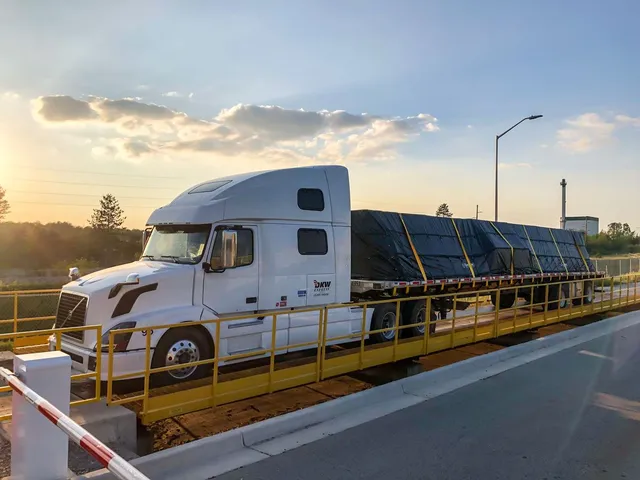Freight dispatching plays a critical role in the logistics and transportation industry. However, it is fraught with challenges that can hinder efficiency and profitability. In this article, we will explore the top challenges in freight dispatching and provide actionable strategies to overcome them, ensuring a smoother operation and enhanced service delivery.
1. Communication Breakdown
Challenge Overview
Effective communication is vital in freight dispatching, but misunderstandings often occur between dispatchers, drivers, and clients. This can lead to delays, errors, and frustrated stakeholders.
Solution Strategies
- Implement Real-Time Communication Tools: Utilize mobile apps and messaging platforms to facilitate instant communication. This allows dispatchers and drivers to share updates and address issues promptly.
- Regular Training: Conduct training sessions focused on communication skills to ensure all team members understand the importance of clear and concise information sharing.
2. Inefficient Routing
Challenge Overview
Poor routing decisions can lead to increased fuel costs and longer delivery times, ultimately impacting customer satisfaction and operational efficiency.
Solution Strategies
- Utilize Route Optimization Software: Invest in software that analyzes traffic patterns, road conditions, and delivery schedules to determine the most efficient routes.
- Leverage GPS Tracking: Implement GPS systems to monitor real-time vehicle locations, enabling quick adjustments to routes as needed.
3. Driver Management Issues
Challenge Overview
Managing a diverse fleet of drivers presents challenges such as maintaining schedules, ensuring compliance, and addressing driver satisfaction.
Solution Strategies
- Regular Check-Ins: Schedule routine communication with drivers to address their concerns and keep them informed about schedules and expectations.
- Incentivize Performance: Develop incentive programs that reward drivers for timely deliveries and adherence to safety protocols, improving morale and productivity.
4. Regulatory Compliance
Challenge Overview
Freight dispatchers must navigate a complex landscape of regulations related to safety, environmental standards, and documentation. Non-compliance can lead to fines and operational disruptions.
Solution Strategies
- Stay Informed: Regularly update your knowledge of local, state, and federal regulations impacting freight dispatching.
- Invest in Compliance Software: Use specialized software that tracks compliance requirements and automates documentation processes to minimize the risk of errors.
5. Managing Customer Expectations
Challenge Overview
In today’s fast-paced environment, customers expect timely updates and reliable delivery schedules. Failure to meet these expectations can damage relationships and lead to lost business.
Solution Strategies
- Provide Real-Time Tracking: Implement tracking systems that allow customers to monitor their shipments’ progress, enhancing transparency and trust.
- Set Clear Expectations: Communicate estimated delivery times and potential delays proactively, ensuring customers have realistic expectations.
6. Technology Integration Challenges
Challenge Overview
The rapid advancement of technology can be overwhelming, and many companies struggle to integrate new tools into their existing systems effectively.
Solution Strategies
- Conduct a Technology Audit: Evaluate your current systems and identify areas where new technology can add value without causing disruption.
- Invest in Training: Provide comprehensive training for employees on new technologies to ensure a smooth transition and maximize benefits.
7. Data Management Issues
Challenge Overview
Freight dispatch involves managing vast amounts of data, from shipment details to driver logs. Poor data management can lead to inaccuracies and inefficiencies.
Solution Strategies
- Implement Centralized Systems: Use centralized software solutions to consolidate data and improve accessibility for all team members.
- Regular Data Audits: Conduct routine audits to ensure data accuracy and consistency, addressing discrepancies as they arise.
8. High Operational Costs
Challenge Overview
Managing costs in freight dispatching can be challenging, especially with fluctuating fuel prices and maintenance expenses.
Solution Strategies
- Adopt Fuel Management Systems: Utilize technology to monitor fuel consumption and identify areas for cost reduction.
- Analyze and Optimize Operations: Regularly review operational processes to identify inefficiencies and implement changes that drive cost savings.
Conclusion
Freight dispatching comes with its set of challenges, but understanding and addressing these issues can significantly enhance operational efficiency and customer satisfaction. By implementing effective communication strategies, optimizing routing, managing driver relations, ensuring regulatory compliance, integrating technology, and maintaining accurate data, businesses can overcome the hurdles in freight dispatch services and thrive in a competitive market.









